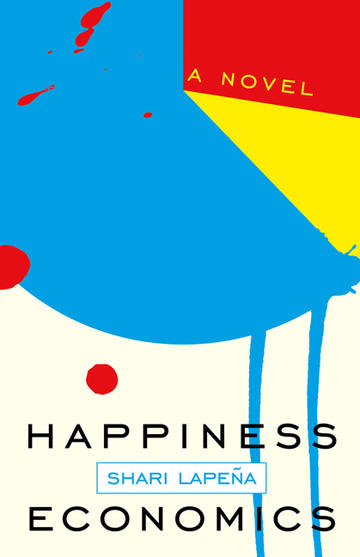Shortlisted for the Stephen Leacock Medal for Humour
Will Thorne is a stalled poet, married to Judy, a wildly successful celebrity economist. Pressured by a starving fellow poet, Will establishes The Poets’ Preservation Society, a genteel organization to help poets in need. But when Will meets his muse, the enigmatic and athletic Lily White, he becomes inspired not only to write poetry, but to take guerrilla action in support of poets everywhere. Poetry meets parkour and culture clashes with commerce in this hilarious look at how we measure the value of art.
A wonderful tale of poets and their Muses, of social navigations and marriages adrift. Full of heart and deftly told. —Will Ferguson, author of Happiness
Lapeña looks at the big questions our culture burdens itself with and somehow transforms it all into a deliciously likable romp. —January Magazine
A funny yet earnest tale. —Quill & Quire
[This book] is a big rollicking, lusty book filled with characters who get in you and stay—I dare you to not love and care about these people. It’s a rewarding story, a beautifully unraveled journey. It’s as clever as hell and filled with massive heart. Happiness Economics is a Brava! performance by a writer to watch. —The Winnipeg Review
The skewering of personalities in both worlds was fun and yet not too cruel. And I was glad that in the end both Will and Judy were shown to be complex people with no villainy ascribed to either. Definitely a book to put on the 'poets in literature' list; I think it would be in great company with Nicholson Baker's The Anthologist and Lynn Coady's Mean Boy. —The Indextrious Reader blog
This novel revels in the inherent comedy of what happens when art meets commerce; when the muse inspires ad slogans. Happiness Economics hilariously pits poetry’s ineffable artistic charms against the hard numbers that rule our daily lives. —Lynn Coady, author of Mean Boy
All four main characters—parents and children—are engrossing and real. Lapeña builds quiet suspense expertly, and has a knack for showing us inside these terribly flawed and sometimes annoying people, making them beautiful in their ordinary and contradictory ways. —The Globe and Mail



